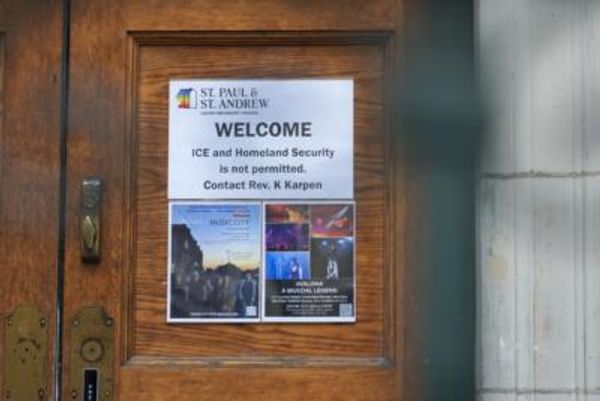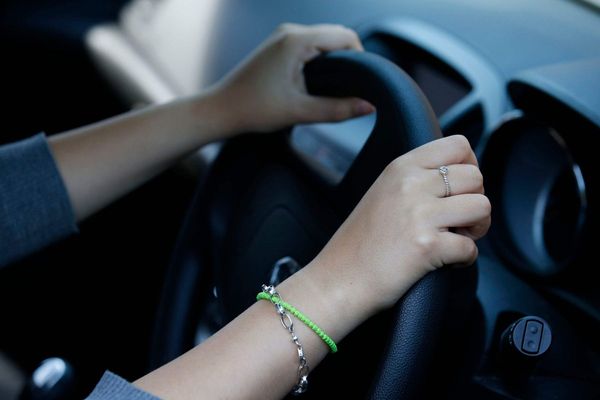
The Russian flag hanging limply in the ambassador’s sprawling front yard is barely visible from the quiet suburban street. Behind overgrown hedges and a security fence, it marks the palatial residence where Alexey Pavlovsky, Moscow’s man in Canberra, has kept a low profile since Vladimir Putin invaded Ukraine on February 24.
Pavlovsky is a man isolated. Public opinion in Australia is fiercely opposed to Russia’s invasion. The Australian government has imposed sanctions. The ambassador hasn’t spoken to Foreign Affairs Minister Marise Payne since the invasion began. A planned address to the National Press Club was cancelled last week after a series of attacks on Ukrainian citizens.
In a rare and exclusive interview with Crikey, Pavlovsky says he wants a chance to break through to Australians. For nearly an hour he offers a barrage of Kremlin talking points, what-aboutery, and allegations of Western hypocrisy.
Sanctions on Russia, Pavlovsky says, amount to a “full-fledged economic war”. The invasion, he claims, is the fault of Western and Ukrainian aggression that put Russia at existential threat from its far smaller, weaker neighbour.
“I think Australians are very lucky people,” he said. “They are blessed. Living on a continent island They even cannot understand properly what is an existential threat [faced by Russia].”
Only hours before, Payne had followed US President Joe Biden and called Russia’s actions in Ukraine “war crimes”. The ambassador’s response was to point to Australia’s involvement in the war on terrorism.
“I find it strange that Australian government officials would jump on that bandwagon given the ADF record in Afghanistan,” he said.
What about Mariupol, the besieged port city where there have been widespread reports of civilian casualties? Where Russian shells have hammered a maternity hospital, and an art school where hundreds were sheltering?
Pavlovsky claims these (widely documented) atrocities are more evidence that the Australian media is complicit in an “information war” pushed by Ukrainian nationalists and designed to “make Russians look like trigger-happy people firing indiscriminately to exterminate Ukrainians”.
“Talking of Mariupol and of many other allegations, it’s not a matter for a brief interview to somehow refute these accusations,” he said. “It takes very specific work, analysing pictures, analysing information, trying to reconcile data.”
Instead he questions why Australian media didn’t cover an alleged Ukrainian missile attack on civilians in Donetsk, controlled by pro-Russian rebels. (Numerous international sources covered it but could not independently verify Russian or Ukrainian claims about the origins of the rockets.)
Nearly 1000 civilians have been killed in Ukraine, and two Associated Press journalists wrote a first-hand piece about being hunted down by Russian troops in Mariupol.
The ambassador denies Russia is against Ukraine: “We [Russians] never had any anti-Ukrainian feelings. To the contrary, there is a historic affinity, a cultural affinity, between our two peoples and many Russians have relatives or extended families or friends in Ukraine.”
Why then are Russian soldiers killing Ukrainians? Pavlovsky says it’s Ukraine’s and the West’s fault. He says the 2014 Euromaidan protests, where pro-Russian Ukrainian president Viktor Yanukovych was ousted in a “coup”, and which triggered Russia’s annexation of Crimea, a “Western-backed coup”, part of NATO’s plan to turn Ukraine into a “tool to point at Russia”.
The last time Pavlovsky spoke to Australian media, back in January, he rubbished claims of an imminent invasion and accused the Morrison government of “fanning hysteria”. When asked about that he says the West gave Ukraine false hope of strength, and coerced Kyiv into rejecting diplomacy.
‘We gave another warning, again leaving the way for a diplomatic settlement … but again, the arrogant behaviour of Ukraine acting in effect as a proxy for Washington didn’t change,” he said.
Ukrainian President Volodymyr Zelenskyy has said his country won’t join NATO. So what does Putin want, and how does this all end?
“A friendly, neighbourly country, where the rights of minorities are respected and guaranteed,” Pavlovsky said, rather ominously. “I also think that the future Ukraine should be free of the influence of neo-Nazi forces.”
The “deNazification” claim is one of Putin’s most egregious attempted justifications for the invasion. Ukraine, like Russia, has its share of far right groups. But Zelenskyy is Jewish, and genocide experts have condemned this claim.
Pavlovsky responds to the experts with: “Joseph Stalin was an ethnic Georgian and it didn’t prevent his ‘great terror’ from coming to his native Georgia to exterminate the whole Georgian intelligentsia. President Obama is African-American, which didn’t prevent him to go on military operations in the Third World.”
The ambassador is a man well-versed in delivering Putin’s icy threats in the warm, euphemistic language of diplomacy. Although the Morrison government, as part of the “collective West” didn’t surprise him with its sanctions, and will incur an “adequate response” from Moscow, he believes relations can be healed.
“I think personally that Russia’s relations with the West, including Australia, could be mended,” he said. “But I think that it will be for Russia an absolutely sober relationship from now on.”
However, as long as bombs continue to fall on Ukraine, Russia’s reputation will be irrevocably tainted by Putin’s invasion, no matter what the Kremlin and its proxies say.







